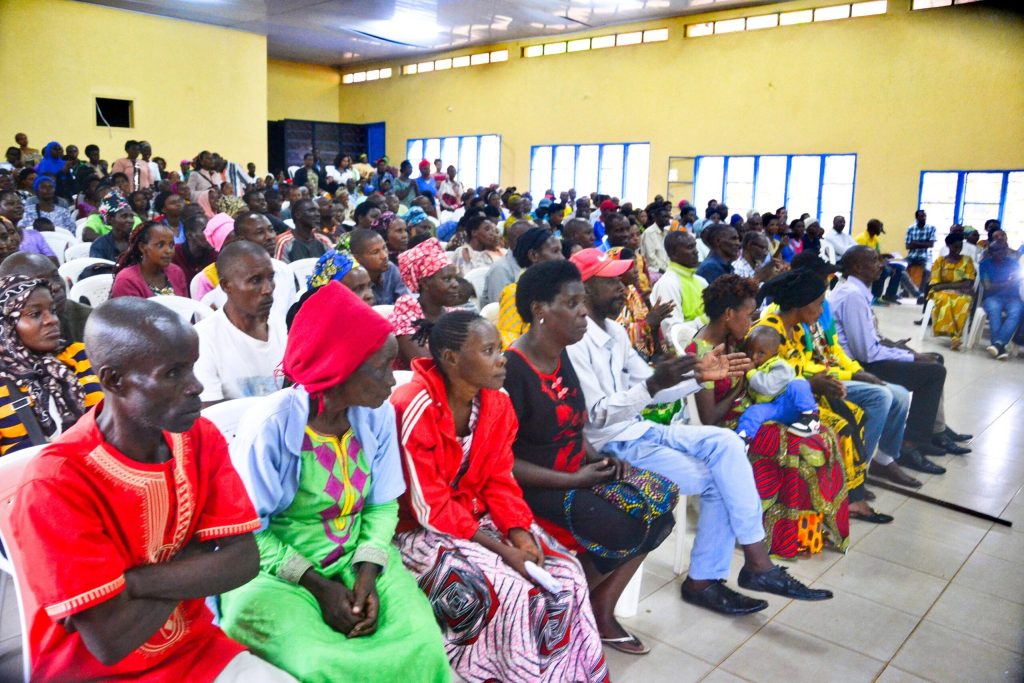Experts Urge Joint Action to End Rising Domestic Conflicts

As reports of family-related killings continue to emerge across the country, relationship and family experts are warning that ignoring domestic conflicts in their early stages is fueling deep emotional distress, marital breakdowns, and even deadly violence in Rwandan homes.
In recent weeks, several disturbing cases have surfaced in various districts, involving spouses killing each other and, in some shocking instances, children killing their parents.
Many Rwandans who spoke to Top Africa News expressed growing concern about this trend, linking it to alcohol abuse, infidelity, and lack of communication between couples factors that slowly but surely erode mutual trust and family harmony. “Sometimes a small misunderstanding at home goes unresolved until it turns into a tragedy,” said Jean Claude Nkurunziza, a resident of Gicumbi District. “Some people even choose to end their lives instead of seeking help or mediation.”
Domestic Conflicts on the Rise
A recent study by the Rwanda Governance Board (RGB) identified domestic conflicts as one of the leading threats to family stability in Rwanda today.
The report highlights several causes of family breakdowns, including:
Infidelity and polygamy among married couples
Property-related violence and financial abuse
Psychological harassment and emotional neglect
Teenage pregnancies
Divorce and its long-term effects on children
Experts warn that if these issues are not addressed early, they can escalate into murders, suicides, or chronic family disintegration.
Experts Call for Joint Action by Government, NGOs, and Faith Institutions
Relationship expert Rosette Nkundimfura emphasized that solving this growing crisis requires a collective national effort. She urged the government, non-governmental organizations, and religious leaders to work together to strengthen family education and moral values. “The family killings we are witnessing stem from instability and poor communication within households,” Nkundimfura said. “When love, respect, and dialogue disappear, even minor issues can become the foundation of bigger crimes.”
She added that teaching couples effective communication and conflict-resolution skills could significantly reduce cases of domestic violence and homicide. “Every family faces challenges,” she said. “But how you handle them determines whether your home remains peaceful. Violence or suicide should never be an option.”
Local Leaders Urged to Take a Proactive Role
Local government leaders are also being encouraged to play a key role in identifying and addressing domestic tensions before they turn violent. Some officials have called for continuous community programs aimed at educating couples and young people about healthy relationships and emotional maturity before marriage.
Patricia Umutoni, a social affairs officer in Gasabo District, told Top Africa News that local leadership must go beyond resolving disputes after violence has occurred. “Many families report conflicts when it’s already too late,” Umutoni said. “We need regular dialogue sessions, especially for newly married couples, to teach them patience, communication, and shared responsibility.”
One executive secretary of a sector in Kigali, who requested anonymity, added: “Many people rush into marriage without understanding what it really means to live with someone. They think love alone is enough, but marriage is about responsibility, patience, and mutual respect. We must help the youth understand that.”
Faith-Based Organizations and Civil Society Urged to Step In
According to Nkundimfura, faith-based organizations and civil society groups have a unique role to play in promoting reconciliation and restoring peace in troubled families. “Religious institutions should not limit their support to prayers alone,” she said. “They must actively mediate family disputes, teach forgiveness, and help couples rebuild trust and safety in their homes.”
Pastor Emmanuel Mugiraneza from the Rwanda Interfaith Council echoed the same view, emphasizing that churches and mosques should be safe spaces for family counseling. “We see people praying together but hiding wounds inside their homes,” he noted. “Religious leaders should create safe platforms where couples can speak openly, find guidance, and rebuild trust before things spiral out of control.”
A Peaceful Family, a Peaceful Nation
Social analysts agree that the family is the foundation of society, and that when peace and stability are lost in homes, the nation inevitably feels the consequences.
Experts are calling on all institutions from local leaders to national policymakers to tackle family-related challenges early through dialogue, counseling, and public awareness that promotes human dignity, compassion, and respect. “When we protect the family, we protect the country,” Nkundimfura concluded. “Preventing domestic conflicts means saving lives.”

SUBSCRIBE TO OUR NEWSLETTER












